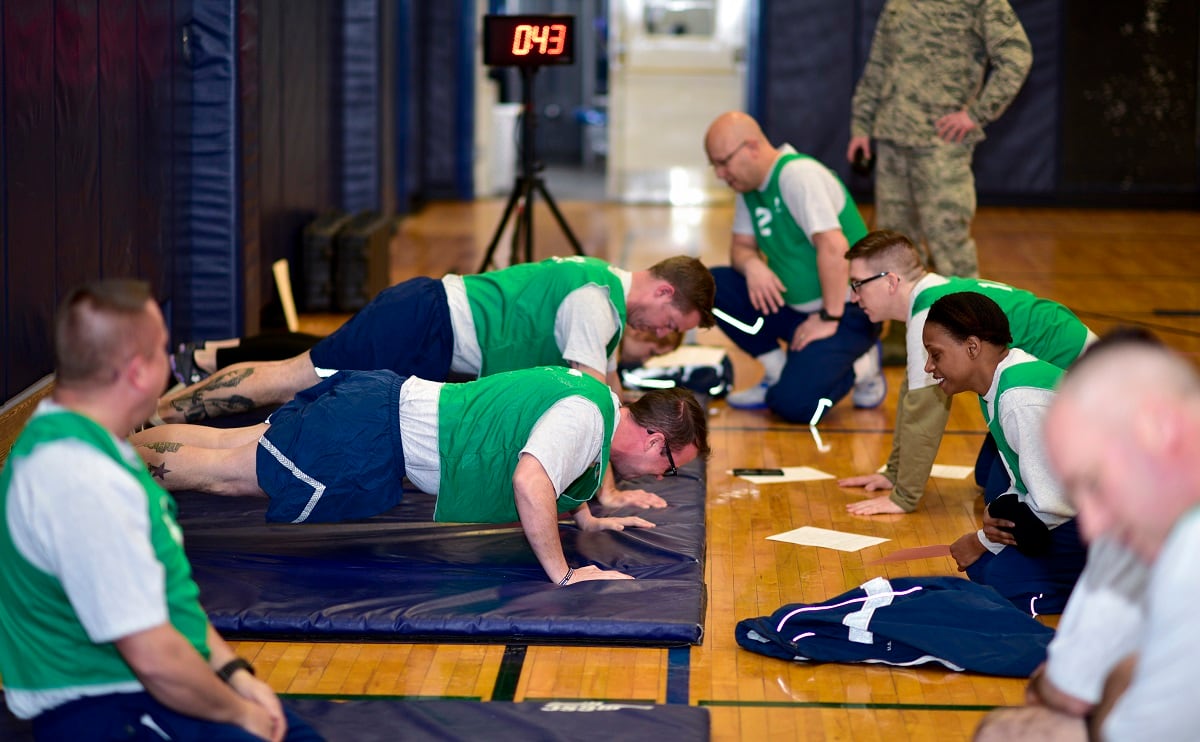WASHINGTON — One of Congress’ top defense policy voices said he is open to discussion about increasing available fitness waivers for some new enlistees in light of the dwindling number of eligible recruits.
“Should we make it easier for someone who has, for example, expertise in computers to serve in the military even though they can’t meet all the physical requirements?” House Armed Services Committee Chairman Mac Thornberry, R-Texas, said during a media roundtable on Wednesday.
“Maybe there needs to be limited exceptions for these high demand areas. All of these are good discussions to have.”
The comments came as Thornberry’s committee is starting its annual work on the defense authorization bill, a massive budget policy measure that sets a host of authorities and priorities for the following fiscal year.
Earlier this month, researchers at The Heritage Foundation reported that more than 70 percent of 17- to 24-year-olds in America today are ineligible to join the military under current Pentagon requirements. About half of that group did not meet physical fitness or health requirements for service.
Thornberry said those statistics “are not a commentary on just the military. It’s a commentary on what is happening in society.”
But from a policy perspective, he said the reality means lawmakers and military planners need to keep a close eye on potential changes that could keep critical military roles fully staffed without hurting force readiness.
“If there is some sort of requirement that has been there since the 1950s simply because it has been there since the 1950s, should we look and see if that continues to be applicable today? Of course,” he said.
“At the same time, I think it would be a mistake just so we can get more people in the front door. That’s not a good answer for the country.”

Lawmakers in recent months have raised concerns with military leaders about shortages in pilots and troops with cybersecurity skills. Pentagon officials already have an array of available recruiting and retention bonuses for those individuals, but continue to report challenges in filling those roles.
Thornberry said he intends to discuss possible legislative solutions with military leaders in the months to come. In recent years, Congress has approved a host of pilot programs to allow mid-career breaks for troops with in-demand skills and other recruiting and retention incentives, with mixed results.
“I’m for experimentation. I’m for trying things,” Thornberry said. “That’s true whether we’re talking about hardware or personnel issues. We need to try some things, because doing what we have always done because we’ve always done it that way doesn’t work.”
Leo covers Congress, Veterans Affairs and the White House for Military Times. He has covered Washington, D.C. since 2004, focusing on military personnel and veterans policies. His work has earned numerous honors, including a 2009 Polk award, a 2010 National Headliner Award, the IAVA Leadership in Journalism award and the VFW News Media award.





